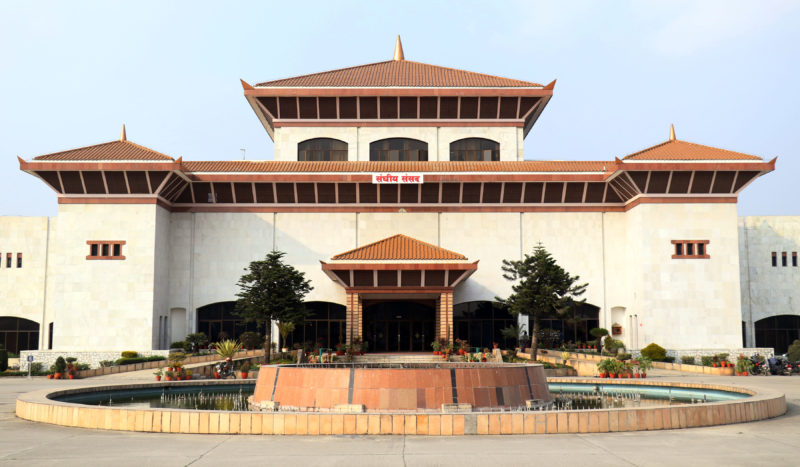Formation of 16 House panels must be based on consensus, says NC
Kathmandu June 23
The principal opposition Nepali Congress wants parliamentary committees to be formed on the basis of consensus and not majority.
With the passage of parliamentary regulations, the Parliament has to form 16 panels that will be crucial for making the government accountable to citizens.
The NC fears it will lose the leadership of parliamentary panels if ruling parties, with two-thirds majority, decide the issue on the basis of strength; whereas if the committees are formed on the basis of consensus, it will be able to select at least a few lawmakers as chairs of some committees.
Surendra Pandey, NC parliamentary party leader in the National Assembly, told THT that his party wanted a package deal with the ruling NCP (NCP) on parliamentary committees. The NC wants the ruling party to leave the post of deputy speaker — citing the constitutional provision that the speaker and deputy speaker should be from different parties and genders. This issue arose after the former CPN-UML and CPN-Maoist Centre merged to create NCP (NCP).
Pandey said the issue of parliamentary committees will be discussed after Prime Minister KP Sharma Oli and NCP(NCP) Co-chair Pushpa Kamal Dahal return. PM Oli is now in China and Dahal is in Singapore.
“We have not told the ruling party which parliamentary panels we want to head. We will tell them when we sit for talks.” Pandey said. “If the ruling parties form parliamentary panels on the basis of majority, they will easily elect all the chairpersons of the committees from their own parties,” Pandey said.
According to Spokesperson for the Parliament Secretariat Bharat Raj Gautam, parties can form thematic committees within a week on the basis of consensus as in the past.
The Parliament Secretariat has floated a method whereby out of 27 members, the maximum number one panel can have, 16 members can be from the ruling NCP (NCP) six to seven from the NC, one or two each from Federal Socialist Forum-Nepal, Rastriya Janata Party-Nepal and one independent member. “We have shared the idea with all the parties. They will probably select the names of their representatives for the panels,” Gautam said.
The Parliament Secretariat floated the idea on the basis of the strength of political parties in the Parliament.
“A lawmaker can be a member of only one committee, but s/he can be an invitee member of other panels without voting right,” Gopal Yogi, a secretary at the Parliament Secretariat told THT.
The joint parliamentary regulation was endorsed by the joint houses yesterday paving the way for formation of the Public Hearing Committee, a crucial panel that conducts confirmation hearings for constitutional post nominees, including the chief justice. Two joint committees — the PHC and the Constitution Implementation and Monitoring Committee — will have 15 members — 12 from HoR and three from the NA.
HoR and NA had passed their respective regulation a few days ago. As per the regulation, the HoR will form 10 thematic
committees and National Assembly four.
According to NCP (NCP) Chief Whip Dev Gurung, aspiration and experience of lawmakers and provincial representation will be kept in mind while forming the parliamentary panels.
“I think the Parliament will now start forming its committees after it receives the names of panel members,” Gurung added. Once the committees are formed, the members will choose the chairpersons of their respective panels.
According to Secretary Yogi, Speaker Krishna Bahadur Mahara and Chairman of National Assembly Ganesh Prasad Timilsena have sought the names of lawmakers for all the parliamentary committees.
NCP (NCP) and the Nepali Congress have started collecting names of lawmakers for various committees.






